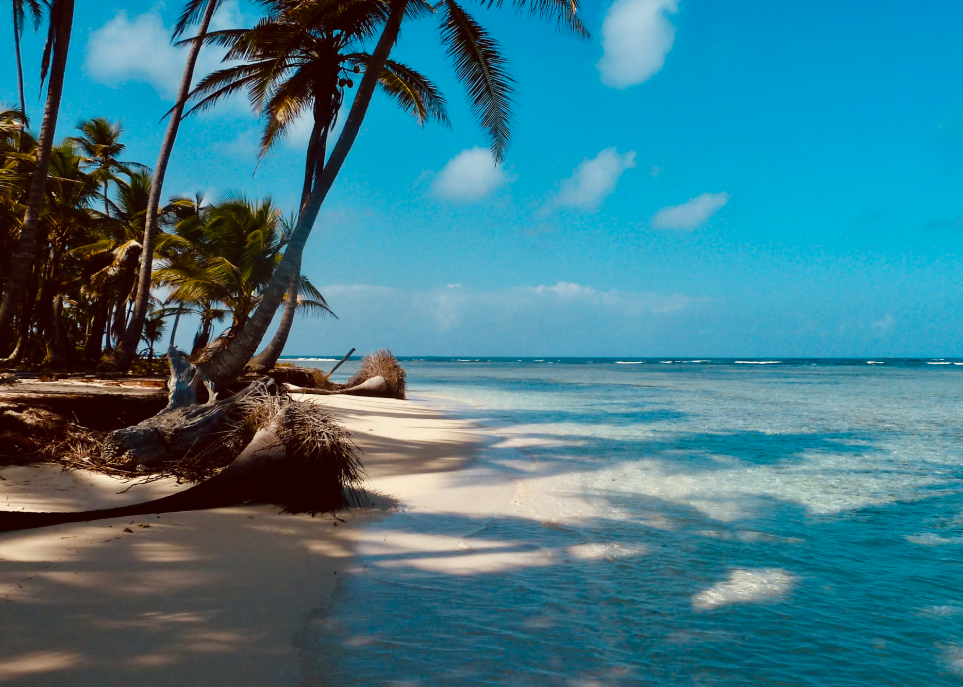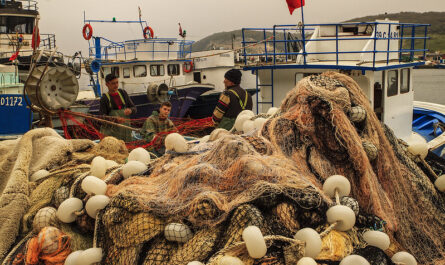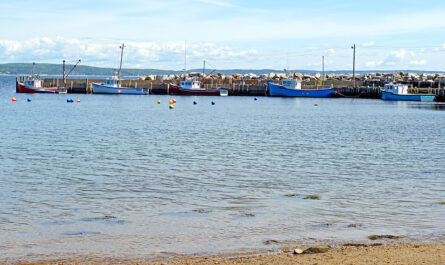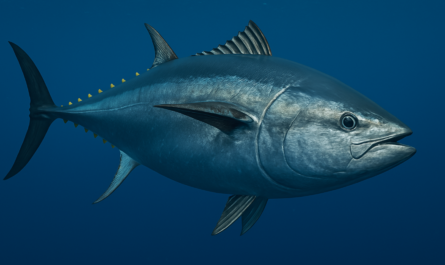The Caribbean is renowned for its sparkling blue waters, rich marine biodiversity, and vibrant coastal cultures. Fisheries in this region are not only a major source of food and economic sustenance but also a cornerstone of cultural identity for local communities. However, escalating pressures from overfishing, climate change, and unsustainable practices have placed immense strain on these vital ecosystems. In response, many Caribbean nations and local communities have embraced community-based fisheries management (CBFM) as an innovative approach to sustainably manage marine resources while simultaneously supporting local livelihoods.
In this article, we explore the significance of community-based fisheries in the Caribbean, discuss the traditional and modern approaches that empower local stakeholders, highlight success stories and challenges, and examine future prospects for ensuring resilient, sustainable fisheries that benefit both the environment and the communities that depend on them.
1. The Importance of Fisheries in the Caribbean
Economic and Cultural Significance
Fisheries have long been the lifeblood of many Caribbean coastal communities. For generations, small-scale fishing has provided not only a source of fresh seafood but also an economic foundation that supports entire families. In many islands, fishing is intertwined with cultural traditions, local culinary practices, and social structures. Festivals, folklore, and community gatherings often celebrate the bounty of the sea, reinforcing the deep-rooted connection between people and their marine environment.
Moreover, fisheries contribute significantly to the region’s economy through local markets, artisanal exports, and even tourism. Sustainable fisheries management, therefore, is essential not only for conserving marine biodiversity but also for ensuring that local communities continue to thrive economically.
Environmental Role
The marine ecosystems of the Caribbean support a diverse range of species—from colorful coral reefs and seagrass beds to migratory fish populations and endangered marine mammals. These ecosystems provide natural services such as coastal protection, nutrient cycling, and carbon sequestration, which are crucial for mitigating the impacts of climate change. Healthy fish populations are key indicators of vibrant ecosystems; when fisheries are managed sustainably, the entire marine environment benefits, contributing to long-term resilience against environmental threats.
2. Challenges Facing Caribbean Fisheries
Overfishing and Unsustainable Practices
Overfishing remains one of the most significant threats to Caribbean fisheries. With increasing demand—both locally and globally—fisheries are under pressure to harvest more than what the marine ecosystems can sustainably yield. This leads to declining fish stocks, the collapse of key species, and the degradation of marine habitats.
In many cases, fishing practices are intensified by the lack of effective regulatory frameworks and enforcement. Inadequate monitoring and limited resources often result in illegal, unreported, and unregulated (IUU) fishing activities that further exacerbate the problem. As a result, even traditional small-scale fisheries are at risk if proper management and sustainable practices are not implemented.
Climate Change Impacts
Climate change poses a multi-faceted challenge to Caribbean fisheries. Rising sea temperatures, ocean acidification, and unpredictable weather patterns have direct consequences on fish reproduction, migration patterns, and the overall health of marine ecosystems. Coral bleaching, a direct outcome of increased water temperatures, has devastated coral reefs that serve as critical breeding and feeding grounds for many fish species.
Furthermore, extreme weather events, such as hurricanes and storms, disrupt fishing activities, damage infrastructure, and can lead to long-term ecological changes in coastal zones. Adaptation to these changing conditions is essential for the long-term sustainability of fisheries in the region.
Socioeconomic Pressures
Many Caribbean communities heavily depend on fisheries for their livelihoods, and this reliance can create socioeconomic pressures that hinder conservation efforts. Poverty, lack of alternative income sources, and limited access to education and technology often force local fishermen to prioritize immediate survival over long-term sustainability. In some areas, community members may lack the financial resources or political influence to advocate for more sustainable practices or to transition to alternative livelihoods.
3. Community-Based Fisheries Management: An Integrated Approach
Community-based fisheries management (CBFM) is a collaborative approach that involves local communities, government agencies, non-governmental organizations (NGOs), and other stakeholders in the sustainable management of fisheries resources. This model is built on the belief that those who depend directly on the marine resources have the best understanding of local ecosystems and should play a central role in their management.
Key Components of CBFM
Local Participation and Empowerment
A hallmark of CBFM is the active participation of local communities in decision-making processes. Fisherfolk are often organized into cooperatives or associations that work together to set quotas, manage access rights, and monitor fish stocks. This collaborative effort not only fosters a sense of ownership and responsibility but also ensures that management measures are culturally appropriate and locally acceptable.
By involving local stakeholders, CBFM helps ensure that rules and regulations are adhered to because the community itself enforces them. Traditional knowledge passed down through generations can be integrated with modern scientific data, creating a management plan that is both effective and context-specific.
Co-Management with Government and NGOs
Effective community-based management often requires a co-management framework, where responsibilities and authority are shared among local communities, government agencies, and NGOs. Governments provide the regulatory framework and technical support, while NGOs often facilitate capacity building and community training programs. This partnership helps bridge gaps in knowledge and resources, ensuring that local communities are equipped to implement sustainable practices.
For example, in some Caribbean nations, government bodies have established co-management committees that include representatives from fishing cooperatives. These committees work together to develop policies, monitor compliance, and address conflicts between different stakeholder groups. This collaborative model has proven successful in enhancing the sustainability of fisheries while maintaining the livelihoods of local communities.
Use of Technology and Data Collection
Modern technology plays a crucial role in community-based fisheries management. Tools such as mobile apps, remote sensing, and community monitoring systems enable fishermen to collect data on fish populations, catch sizes, and fishing efforts. This data is then used to make informed decisions about sustainable fishing practices.
In some communities, digital platforms have been introduced that allow fishers to report their daily catches, track seasonal changes, and even communicate with each other regarding the best fishing spots and times. The integration of technology not only improves transparency but also enhances the overall management and enforcement of sustainable practices.
4. Success Stories and Case Studies
Case Study 1: The Bahamas and Local Fishers’ Cooperatives
In the Bahamas, several community-based initiatives have been implemented to promote sustainable fisheries. Local cooperatives have partnered with government agencies to establish marine protected areas (MPAs) and seasonal fishing closures that allow fish populations to recover. These efforts have led to an increase in fish stocks and improved economic returns for local communities.
One notable example is the cooperative-led management of grouper fisheries, where strict quotas and seasonal bans were enforced. Fishermen participated in regular training sessions on sustainable fishing techniques and were provided with modern equipment to reduce bycatch. As a result, local fishers reported a steady increase in catch sizes and improved incomes while contributing to the overall health of the marine ecosystem.
Case Study 2: Belize – Community Fisheries Management in Action
Belize is another country in the Caribbean where community-based fisheries management has made a significant impact. In coastal communities around Belize, local fishers have banded together to create self-regulating groups that oversee sustainable fishing practices. With support from international NGOs, these groups have implemented measures such as size limits, gear restrictions, and no-take zones that have helped protect vulnerable species and habitats.
The success of these initiatives is evident in the improved health of coral reefs and increased fish diversity. Furthermore, the management practices have created new opportunities for eco-tourism, allowing communities to diversify their income sources. Through community-led eco-certification programs, local fisheries have gained access to premium markets that value sustainability and ethical practices.
Case Study 3: Trinidad and Tobago’s Fisheries Improvement Projects
In Trinidad and Tobago, community-based fisheries improvement projects have been instrumental in restoring depleted fish stocks and reducing conflicts between small-scale fishers and commercial operators. Collaborative efforts between local communities, government authorities, and academic institutions have led to the development of sustainable fishing guidelines that balance conservation with economic needs.
These projects include regular stock assessments, community training workshops, and the introduction of alternative livelihood programs such as aquaculture and eco-tourism. By empowering local fishers with the tools and knowledge to manage their resources responsibly, Trinidad and Tobago is setting an example for other Caribbean nations facing similar challenges.
5. Benefits of Community-Based Fisheries Management
Environmental Sustainability
The most immediate benefit of community-based fisheries management is the enhancement of environmental sustainability. By regulating fishing practices through locally managed systems, overfishing can be significantly reduced. Protected areas and seasonal closures allow fish populations to rebuild, ensuring long-term ecological balance and resilience against environmental fluctuations.
When communities actively participate in monitoring and enforcement, there is a greater incentive to adopt conservation measures. The integration of traditional ecological knowledge with modern science creates adaptive management strategies that can better cope with the challenges of climate change and habitat degradation.
Economic Empowerment
For many coastal communities in the Caribbean, fisheries are a primary source of income. Community-based management not only helps preserve these natural resources but also supports the economic well-being of local people. When fish stocks are healthy, catch sizes improve, and fishers can earn a fair income.
Moreover, sustainable practices can open up new market opportunities. Eco-certification programs, for example, allow communities to market their products as sustainably sourced, potentially commanding higher prices in international markets. The development of eco-tourism linked to healthy fisheries further diversifies local economies, reducing dependence on overexploited marine resources.
Social Cohesion and Cultural Preservation
CBFM reinforces social cohesion by uniting community members around common goals. When fishers work together to manage their resources, it fosters a sense of shared responsibility and pride. This collective action helps preserve traditional fishing practices, cultural heritage, and local identities that have been passed down through generations.
Community-based management also creates a platform for dialogue and conflict resolution. By involving all stakeholders in decision-making, it minimizes disputes between commercial and small-scale fishers, ensuring that cultural traditions are maintained alongside modern economic practices.
6. Challenges and Barriers to Implementation
Despite its numerous benefits, community-based fisheries management is not without challenges. Some of the key barriers include:
Limited Financial and Technical Resources
Many Caribbean communities face financial constraints that hinder the implementation of effective management systems. Limited access to modern fishing equipment, monitoring technology, and training programs can impede the adoption of sustainable practices. Securing funding for community-led initiatives remains a persistent challenge, as does attracting technical expertise that can integrate traditional knowledge with contemporary management tools.
Enforcement and Compliance Issues
In areas where regulatory frameworks are weak or poorly enforced, ensuring compliance with sustainable fishing practices can be difficult. Illegal, unreported, and unregulated (IUU) fishing continues to undermine conservation efforts. Strengthening local enforcement through community patrols, improved surveillance, and supportive government policies is essential but requires ongoing commitment and resources.
Conflicts Among Stakeholders
Differences in priorities and economic pressures can lead to conflicts among stakeholders. While some community members may prioritize short-term income, others may advocate for long-term sustainability. Balancing these divergent interests requires effective communication, trust-building, and sometimes mediation by neutral third parties such as NGOs or government agencies.
Climate Change and Environmental Variability
The impacts of climate change, including rising sea temperatures, increased frequency of severe weather events, and ocean acidification, add an additional layer of complexity to fisheries management. Community-based approaches must be flexible and adaptive to respond to these changing conditions, which can be challenging given limited resources and external pressures.
7. Future Prospects: Toward a Sustainable and Resilient Caribbean Fisheries Sector
Integrating Modern Technologies
Looking ahead, the integration of modern technologies can greatly enhance the effectiveness of community-based fisheries management. Mobile apps, satellite monitoring, and data analytics can empower local communities by providing real-time information on fish stocks, weather conditions, and illegal activities. These technologies can facilitate better decision-making and enable communities to respond more swiftly to environmental changes.
Strengthening Policy Support and Partnerships
Government support and international partnerships are crucial for scaling community-based management initiatives. Policies that recognize and reinforce the rights of local communities to manage their resources, coupled with technical and financial support from NGOs and international agencies, can help overcome many of the current challenges. Establishing regional cooperation among Caribbean nations can also foster the sharing of best practices and collective strategies to combat common threats such as IUU fishing and climate change.
Capacity Building and Education
Investing in capacity building and education is essential for the long-term success of community-based fisheries management. Training programs that enhance local technical skills, raise awareness about sustainable practices, and promote the use of modern management tools can empower communities to take control of their fisheries resources. Educational initiatives that document and preserve traditional ecological knowledge will ensure that future generations continue to value and protect their marine heritage.
Diversification of Livelihoods
To reduce overdependence on fisheries, diversification of livelihoods is key. By developing alternative income sources such as eco-tourism, aquaculture, and artisanal crafts, communities can reduce the pressure on wild fish stocks and build more resilient local economies. Diversification not only supports sustainability but also enhances the overall quality of life by providing multiple avenues for economic growth and cultural expression.
Embracing Community-Led Innovation
Finally, fostering an environment of community-led innovation is critical. Encouraging local entrepreneurs and innovators to develop new products, services, and management practices that align with sustainable fisheries can drive long-term change. From value-added seafood processing to sustainable aquaculture techniques, local innovation can unlock new opportunities and contribute to a more prosperous and environmentally responsible fisheries sector.
8. Conclusion
Community-based fisheries management in the Caribbean represents a transformative approach to balancing conservation with economic development. By empowering local communities, integrating traditional ecological knowledge with modern technology, and fostering partnerships among all stakeholders, the Caribbean can develop a fisheries management model that not only protects vital marine ecosystems but also sustains the livelihoods of those who depend on them.
As this guide has explored, the benefits of community-based management extend far beyond ecological preservation. They include economic empowerment, social cohesion, cultural preservation, and enhanced resilience against the challenges of climate change and overfishing. While significant challenges remain—including limited resources, enforcement issues, and stakeholder conflicts—the future of Caribbean fisheries looks promising when local communities are placed at the center of management efforts.
The path forward involves embracing innovation, investing in education and capacity building, and strengthening policy frameworks to support sustainable practices. By taking these steps, Caribbean nations can ensure that their fisheries continue to thrive for generations to come, offering both a sustainable food source and a robust foundation for local economies.
Ultimately, community-based fisheries management is about more than just protecting fish stocks; it’s about safeguarding a way of life and preserving the natural beauty and cultural heritage of the Caribbean. Through a balanced, inclusive, and forward-thinking approach, the region can serve as a model for sustainable marine resource management worldwide—demonstrating that it is possible to protect natural resources while supporting vibrant, resilient communities.
By planning and investing in sustainable practices today, the Caribbean can look forward to a future where its marine ecosystems remain abundant, its communities prosper, and the delicate balance between nature and human activity is maintained. The journey toward sustainable fisheries is not an easy one, but with the collective efforts of communities, governments, and international partners, it is a goal well within reach.
As the world grapples with the dual challenges of environmental degradation and economic inequality, the Caribbean’s commitment to community-based fisheries management offers a beacon of hope—a testament to what can be achieved when local voices are heard, traditional knowledge is respected, and innovative solutions are embraced. Now is the time to support these initiatives and ensure that the rich marine heritage of the Caribbean continues to nourish both people and the planet.



